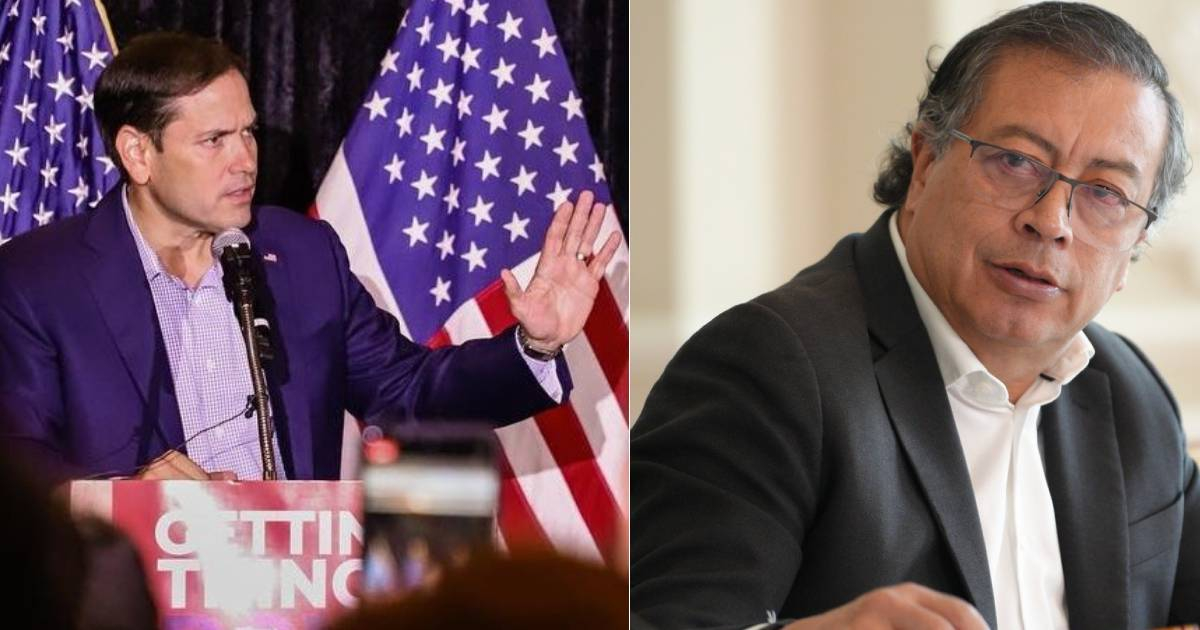The diplomatic friction between the United States and Colombia escalated this Sunday when the Colombian government refused to accept a flight carrying deportees from the United States. In a statement, U.S. Secretary of State Marco Rubio condemned Colombia's decision to cancel the authorization for a flight with Colombian deportees while the aircraft were already airborne.
In an official announcement, Rubio emphasized that the Trump administration would not tolerate deceit or mistreatment, asserting the responsibility of each nation to promptly and seriously accept their citizens who are in irregular situations. "President Trump has made it clear that, under his administration, the United States will no longer be the victim of lies or abuses. It is the duty of every nation to reclaim its citizens who are unlawfully in the United States promptly and earnestly," Rubio shared on his X account.
Rubio further stated that Colombia initially agreed to the flights and granted the necessary permissions, only to withdraw them at the last minute, once the planes were already en route. "Colombian President Petro had approved the flights and provided all necessary clearances, but later rescinded his approval when the aircraft were in mid-air. As today's actions demonstrate, we remain steadfast in our commitment to ending illegal immigration and enhancing U.S. border security," declared the American official.
Meanwhile, President Petro responded forcefully, rejecting the conditions imposed by the United States and defending Colombia's sovereign stance. In one of his messages, he asserted: "I will never allow Colombians to be brought back in handcuffs on flights. Marco, if such actions were permitted by foreign affairs officials, it was never under my directive. They are lackeys, not me. I am a man of freedom, not of chains."
In a subsequent tweet, Petro expanded on his response by addressing the regional context and the root causes of migration: "We have never refused to accept migrants and have made efforts to curb migration. The foolish blockade on Venezuela triggered millions of migrants heading to the U.S. But do not demand that I accept deportees from the U.S., handcuffed, on military planes. We are not a colony of anyone."
The recent clash between the United States and Colombia reached a boiling point when Petro denied entry to U.S. military flights carrying deported Colombians. In retaliation, President Donald Trump imposed a 25% tariff on Colombian imports and halted visa issuance for Colombian officials and their allies, accusing Petro of endangering U.S. national security.
Amid this crisis, the interim president of the Community of Latin American and Caribbean States (CELAC), Honduran leader Xiomara Castro de Zelaya, called for an urgent summit to address the migration crisis in Latin America and the Caribbean. The meeting aims to discuss migration tensions, examine U.S. deportation policies, and promote joint efforts to ensure humane treatment of migrants in the region.
Experts suggest that this confrontation highlights the ideological differences between the two leaders and could have significant economic repercussions, given that the United States is a crucial trade partner for Colombia. Additionally, it underscores regional tensions regarding U.S. deportation policies, with other Latin American countries, such as Brazil and Mexico, also voicing dissatisfaction over the treatment of their deported citizens.
Key Questions on U.S.-Colombia Diplomatic Tensions
Why did Colombia reject the flight with deportees?
Colombia rejected the flight carrying deportees because President Petro opposed the conditions under which the deportees were being returned, including being handcuffed on military planes, which he saw as an affront to Colombian sovereignty.
What was Marco Rubio's reaction to Colombia's decision?
Marco Rubio criticized Colombia for withdrawing authorization for the deportee flight at the last minute and emphasized the responsibility of nations to accept their citizens who are illegally in the U.S. promptly and seriously.
How did the United States respond to Colombia's refusal?
In response, President Trump imposed a 25% tariff on Colombian imports and suspended visa issuance for Colombian officials and their allies, accusing Petro of jeopardizing U.S. national security.
